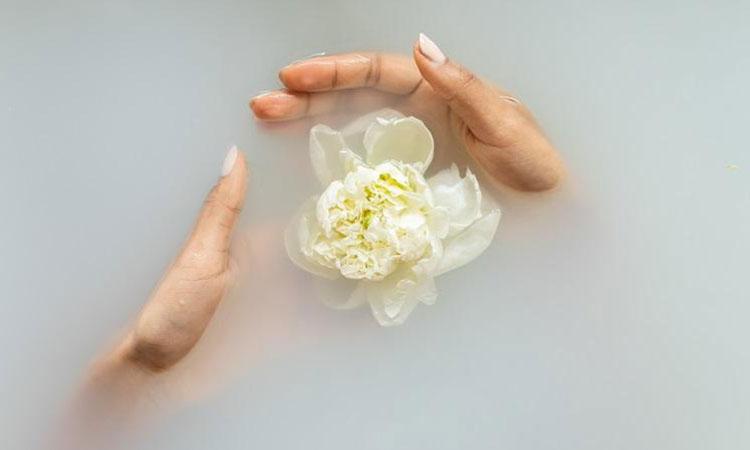Organic beauty has had a recent surge in popularity, but one question we should all ask ourselves before purchasing one is if it is truly organic or if beauty firms are simply slapping an organic label on the containers and selling it like a hot dog.
To have a better understanding of what organic beauty really means after its recent surge, IANSlife spoke with Sanjali Giri, VP of International Brands and Retail at House of Beauty.
Read on...
What does organic beauty really mean now?
Giri: There is a lot of ambiguity in understanding organic beauty in the market and sometimes it is also perceived as a synonym for Natural. Unlike Natural, the term Organic is highly regulated and certified, which for an A-level organic product should mean more than 70 per cent certified organic ingredients in them. Organic Beauty stands for clean and high-performance skincare and cosmetics that enhance the powerful antioxidants and limit harmful chemical residues and synthetic additives. It is a beauty solution for a clean and conscious lifestyle.
How does Juice Beauty translate this philosophy into your products and formulations?
Giri: Juice Beauty’s philosophy is rooted in two fundamental principles which are Health and Sustainability. The brand believes that what you put on your skin should contribute to your overall well-being and that the planet should benefit from your choices as well. Here's how we integrate these principles into our products and formulations:
Organic Clean and Sustainable Ingredients: Juice Beauty formulations are created using high-quality, certified organic ingredients. These ingredients are grown without synthetic pesticides or herbicides, ensuring both the health of the skin and the environment. The brand sources responsibly, choosing suppliers who share the commitment to sustainability. Juice Beauty believes that clean beauty should be the standard, not the exception.
Farm to Beauty: This journey begins with sourcing the finest organic ingredients from certified organic farms in collaboration with local farmers who share this commitment to sustainability. Juice Beauty’s farm in Healdsburg, Sonoma County showcases the power of its antioxidant-rich ingredients, takes Juice Beauty customers on the journey from sustainable to organic, and also is a source for its grape and olive. Farm to Beauty to your beautiful face.
Performance Products: Focused on delivering high-performance products Juice Beauty has radically changed the chemistry of beauty. It uses Advanced high-potency ingredients a proprietary blend of antioxidant-rich certified organic botanical juices instead of petroleum byproducts, water fillers, or other endocrine-disrupting ingredients.
In a market flooded with beauty products, how do consumers identify genuinely 'organic' products from those that simply claim to be?
Giri: Yes, it can indeed be challenging to differentiate genuinely organic products from those that merely claim to be. However, there are several key steps consumers can take to ensure they are selecting authentic organic beauty products:
Check for Organic Certifications: Look for recognized organic certifications on the product labels. These certifications are awarded by accredited organizations and ensure that the product meets specific organic standards. Most credible certifications include USDA Organic, COSMOS Organic, and Soil Association Organic.
Read Ingredient Lists: Thoroughly review the ingredient list on the product packaging. Organic products should prominently feature organic ingredients. Pay attention to the top ingredients, as they make up the majority of the product.
Avoid Synthetic Additives: Be cautious of products that contain synthetic additives, such as parabens, sulfates, and artificial fragrances. Authentic organic products minimize the use of these synthetic chemicals.
Research the Brand: Investigate the brand's reputation and values. Brands committed to organic principles often have a transparent approach and share their sourcing and manufacturing processes. Customer reviews and ratings can also provide valuable insights into a brand's authenticity.
Look for Transparency: Trustworthy brands disclose information about their sourcing, manufacturing, and sustainability practices on their websites or product packaging. Brands that are genuinely organic are usually proud to share their commitment to organic and sustainable practices.
Educate Yourself: Familiarise yourself with common organic ingredients and their benefits. This knowledge will help you make more informed choices when shopping for beauty products.
So, while the beauty market may be crowded, consumers can navigate it successfully by staying informed, checking for organic certifications, and doing their due diligence. Authentic organic beauty products exist, and they are worth the effort to find.
How does embracing 'organic' beauty impact not only our skin but also the environment?
Giri: Embracing 'organic' beauty extends benefits beyond our skin, positively influencing the environment in several significant ways like the release of harmful chemicals into the environment, and reducing air and water pollution. It also safeguards the health of farmworkers and nearby communities.
Farming practices typically promote biodiversity by avoiding monoculture and chemical-intensive farming methods.
Sustainable agriculture: Organic farming tends to be more sustainable, emphasizing soil health, crop rotation, and the use of compost and organic matter. These practices reduce soil erosion and promote long-term agricultural viability.
Less water usage: Organic agriculture often utilizes more efficient water management practices, such as drip irrigation and rainwater harvesting. This reduces water wastage and conserves this precious resource.
Packaging innovation: Many organic beauty brands are committed to eco-friendly packaging, using materials that are recyclable, biodegradable, or made from post-consumer recycled content. This reduces plastic waste and lowers the overall carbon footprint.
Supporting sustainable practices: By purchasing organic beauty products, consumers encourage brands to continue sourcing sustainable ingredients and adopting environmentally responsible practices. This consumer demand can drive positive change throughout the industry.
Chemical-free ecosystems: Organic farming and beauty product formulations avoid synthetic chemicals, which can harm aquatic life when they wash into waterways. This helps maintain healthier aquatic ecosystems and reduces harm to aquatic creatures.
In addition to these environmental benefits, 'organic' beauty products are generally kinder to our skin. They contain fewer synthetic irritants and are less likely to cause allergic reactions. Organic ingredients can provide natural nourishment and hydration, leading to healthier, more radiant skin over time.
With Organic September upon us, what message would you like to share with individuals who are considering transitioning to 'organic' beauty?
Giri: This Organic September, I invite you to take a step towards a more conscious, healthier, and sustainable beauty routine. Explore the world of 'organic' beauty with curiosity and enthusiasm. Ask questions, demand transparency, and make choices that resonate with your values.
Choose complete well-being for a holistic lifestyle change. When you make the switch to organic, you are choosing to nourish your skin with ingredients that are free from synthetic pesticides and harmful chemicals. Your skin, your body's largest organ, deserves the very best nature has to offer.
Clean beauty myths and misconceptions
Giri: At House of Beauty, we are committed to offering a curated selection of clean beauty products that adhere to rigorous standards of safety, efficacy, and sustainability. We believe that transparency, education, and empowering consumers with accurate information are essential to dispel myths and ensure a more informed and conscious approach to beauty.
Myth 1: Clean Products Are Ineffective
Reality: Clean beauty products can be highly effective. Many reputable clean beauty brands invest in cutting-edge research and use potent, natural ingredients that deliver real results. Clean beauty is about choosing products that are good for your skin without compromising efficacy.
Myth 2: All Clean Beauty Brands Are Created Equal
Reality: Clean beauty is a broad term, and not all brands adhere to the same standards. It's crucial to research individual brands, their ingredient sourcing, manufacturing processes, and certifications to ensure their commitment to clean and sustainable practices.
Myth 3: Clean Products Are Always Expensive
Reality: While some clean beauty products may be at a premium, there are also affordable options available. Price varies depending on factors like brand reputation, ingredient quality, and packaging. Consumers can find clean beauty products to suit various budgets.
Myth 4: Clean Beauty Is Just a Trend
Reality: Clean beauty is more than just a passing trend. It represents a fundamental shift towards safer, more conscious consumer choices. As consumers become more informed about the impact of their beauty purchases on their health and the environment, clean beauty is likely to remain a significant force in the industry.
ALSO READ | Aesthetic transformations of small apartments for Gen Z homeowners
ALSO READ | Air Purifiers for Health and Happiness


















